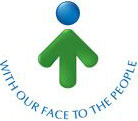General rights and obligations
The fight against doping in sport is founded on the strict liability principle. In plain language, “strict liability” means “guilty until proven innocent.” For this reason, it is crucial for athletes to be fully aware of their rights and obligations in anti-doping.
It is each athlete’s personal obligation:
• to know what constitutes an anti-doping rule violation;
• to know what substances and methods are on the Prohibited List;
• to ensure that no prohibited substance enters his/her body and to make sure that neither he/she nor anyone else administers prohibited methods on him/her.
Each athlete has the right:
• to a fair hearing process where he/she is asserted to have committed an anti-doping rule violation;
• to request a therapeutic use exemption (granted in accordance with the International Standard for Therapeutic Use Exemptions of the World Anti-Doping Agency) where he/she needs treatment requiring the use of a prohibited substance or a prohibited method;
• to refuse to be tested if the doping control officer fails to produce identification or authorization to conduct a test on them.
Rights and obligations during testing
Rights and obligations in case of a positive A-sample
Rights and obligations of athletes included in the Anti-Doping Centre Registered Testing Pool
Rights and obligations of athletes in respect of TUEs
Athletes' Anti-doping Rights ActAthletes' Anti-doping Rights Act /Bulgarian/







